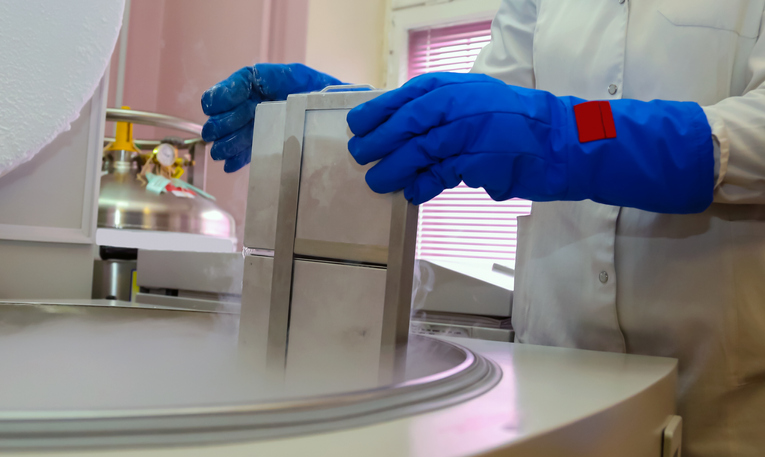With a pandemic threatening the health and safety of Emory researchers in March 2020, university leadership made the difficult decision to ramp down some types of research. For investigators that use laboratory mice or rats in their research, this posed a significant challenge.
How could investigators maintain valuable, often unique, lines of genetically engineered animals for future research? The Mouse Transgenic and Gene Targeting Core (TMF) had a solution: cryopreservation. Animals’ sperm — and occasionally, embryos – can be carefully preserved in cold-resistant straws and stored in liquid nitrogen.
“Cryopreservation is a reliable and efficient method for archiving and distributing genetically engineered mouse lines,” says Karolina Piotrowska-Nitsche, PhD, director of the Core.
The TMF is located on the ground floor of the Emory Health Sciences Research Building and provides a suite of services related to transgenics and gene editing, working with tools such as CRISPR/Cas9 to make subtle or complex changes in the DNA of living animals.






